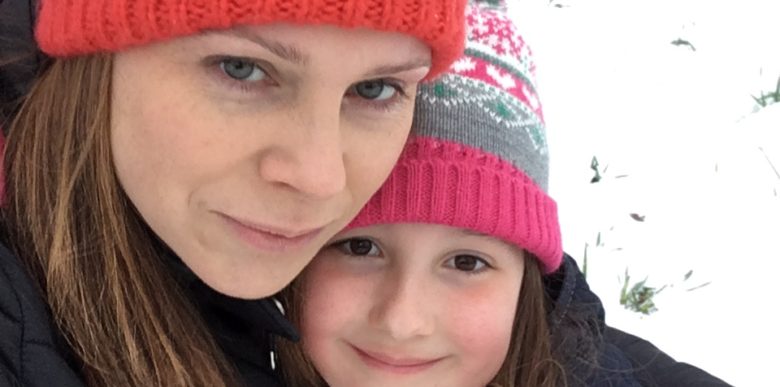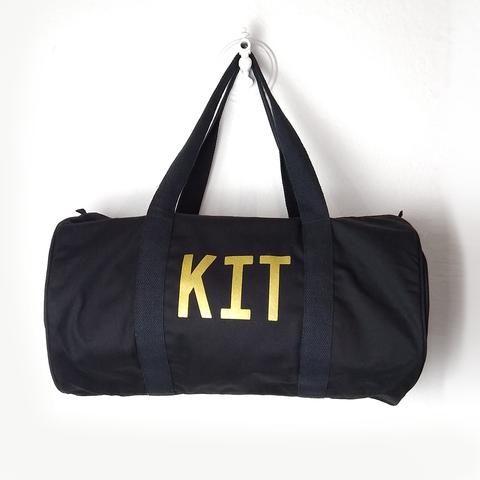Anna Louise Cunniff - 24 May 18
I still remember the day my daughter, aged eight at the time, told me there was a new girl in her class. She described her enthusiastically, her name was Felicie, she came from Paris and currently lived with her aunt. Her face lit up as she described her and I could not stop myself from hoping this would be ‘The Friend’ she so desperately wanted. After a minute, I realised some of the details sounded familiar. Paris. Felicie? We had recently watched ‘Ballerina’ and my daughter had loved it.
My heart sunk as I realised this new friend did not exist. I gently questioned her and she told me that she made up a friend, “because I’m lonely, Mummy”. This has happened twice, the next ‘friend’ was Amelie- there’s a French theme here! I held her in my arms, and we ended up sobbing together on the kitchen floor (more me than her). A more together mother than me would have handled things in a better way, but I felt broken for her that day and the tears came. My own mother always tells me I feel my daughter’s pain more than my child does- I wonder if this is true, as I would prefer it to be the case.
My daughter is now nine and she was diagnosed with Dyspraxia aged 5, in her first Primary year. Dyspraxia (known as Developmental Coordination Disorder in medical circles) is primarily categorised as a motor skills impairment. It is a Specific Learning Difficulty (I prefer the term difference), meaning that it does not affect intelligence and is specific to particular areas. Despite the focus on motor skills, other areas such as speech and ‘executive functioning’ (otherwise known as attention, memory, organisation, planning) may be affected.
I’ve listed multiple issues here, but each child is different in terms of their particular symptoms and challenges. Some may overlap with other ‘Dys’ family members – typically dysgraphia and dyslexia. For others, motor skills impairment will be the primary symptom, minus other challenges. In my experience, ‘clear cut’ cases are the exception rather than the norm. For many children, however, with specific learning differences (such as Dyspraxia and Dyslexia), social, communication, sensory, emotional and behavioural challenges may also arise. I wanted to share our ‘Felicie’ story, because such challenges are common amongst children with learning differences.
The story of Felicie occurred at a time when my daughter had experienced a drawn-out period of exclusion as the result of a friendship tringle- that old saying ‘three’s a crowd’ (the weakest was pushed out). My child experienced months of subtle bullying (the type parents notice but bullies generally hide well), which affected the whole family and had ramifications wider than the school playground. She was close to a girl from year one, and upon another child joining school, the friendship triangle didn’t end well. The ‘new girl’ nudged my child out, said unkind things to and about her and she was rejected each day for many months. Her mood sank, she began picking the skin on her thumbs with anxiety and refusing school.
Fortunately, we have a very supportive school with fantastic teachers who understand and implement Inclusive practice. I felt like rewarding Extravert Child who marched up to Bully Mum, declaring her child was unkind to mine and she had witnesses (okay, her mum is a friend but this was unrehearsed!).
My daughter is very sociable and enjoys interacting with others. She is, however, like many children with learning and attention issues, immature for her age and this isn’t helped by being both the youngest and tallest in her class! Who among us hasn’t had that sting in their stomach upon hearing that the party invite didn’t come our way? In fairness, parties have petered out at this age and we had our share of early invites- so I tell myself…
Sometimes, as in my daughter’s case, innate understanding of playground behaviour doesn’t come as naturally as it does for other children, leading to vulnerability. She recognises emotional expression and has empathy, but I feel she is like Detective Cleudo, sometimes working out the story from fragmented clues. Perhaps processing speed issues also have a part to play. In the fast paced world of the playground, it is easy to get lost. I often wonder if visual perception/discrimination issues (often associated with Dyspraxia and Dyslexia) also lend themselves to challenges with facial/emotional expression? It makes sense to me. With maturity, these issues improve, but it can make social and communication situations hard work.
Dyspraxia impacts sequencing, not only of motor skills, but also in our case influencing sequencing in other areas. This, combined with working memory (think Goldfish) challenges, is a disadvantage in the playground, as peers understandably become frustrated by inability to ‘get’ and then remember the rules of the game. Thank goodness the majority of schoolmates are inclusive, patient and understanding! I am glad that my child seems well liked and I think peer sessions explaining Dyspraxia and Dyslexia, have helped to remove some of the ‘mystery’ as to why certain children receive more help in school than others.
The mechanics of thought, understanding and learning (‘Cognition’), such as Processing Speed and Working Memory (keeping things in mind long enough to store long-term), influence responses and timings. In playground settings it can frequently be hard to keep up. My daughter’s friends know this is the case and it helps them to understand why they need to repeat things. Children can be naturally accommodating, although there will always be one who picks upon vulnerabilities. We can help our children to be their own Advocates, be assertive and to recognise bullying, should this arise. Inclusion policy in school is also important and we are fortunate to have a great school.
For many children, language, emotional recognition and/or sequencing issues often mean that understanding the rules of the game is a challenge. Sometimes my daughter’s speech is coherent and other days she easily loses the thread. School life necessitates swift social interactions and understanding of rules. Social rules, however, are mainly unspoken and innate in playground settings, creating additional challenges for children with learning and attention issues. This can lead to vulnerability to isolation and bullying in extreme cases.
At one stage, amidst a dark patch of school anxiety, in a desperate bid to seek something- (protection? I’m not sure what else to call it), we called a local Special Needs School, no longer knowing what would be the ‘best fit’ for her. Would she be better off with other neuro-diverse children around her? She is a subtle outlier in mainstream and not ‘disabled enough’ for special school.
She does not have an intellectual disability, but is impaired by severe Dyslexia and Dysgraphia, alongside Dyspraxic issues. Her dad describes her as “like a Formula 1 car having a Ford Fiesta gearbox. The potential of the engine isn’t released to the wheels because of what connects them together”. The Headmaster asked how she would react if a pupil threw a chair in class. We said she would be shocked, and were told this, therefore, was not the school for her. I know I need to let go and stop trying to buffer the world around her, but it’s hard seeing your child vulnerable. I think I’m constantly searching for something to help- I’m not sure what.
I recall playdates in the early years (usually engineered by me), whereby my child would appear so keen for friendship, I feared the other child would be pushed away. “Will you be my BFF”, “We can be best friends”, I heard her say. I felt like screaming the same thing, and overcompensated, trying to appeal to the other child’s mother, creating a prefect playdate so the child would want to return. Needy, needy! Desperately trying too hard! These days, I have stepped back and let nature take its course. This has resulted in a couple of ‘proper’ friends, and acceptance amongst the wider group at school. It is also much less tiring!
There are now a couple of girls who my daughter would describe as real friends, who have remained over the years. She is, however, naïve in her interactions and vulnerable as a result. I feel anger when she tells me a ‘friend’ said she couldn’t join in with a game, because someone else didn’t like her, and she seemed accepting of this. Why should she accept this? It saddened me that she seemed grateful that someone ‘let her play’.
For every parent who has witnessed their child rejected in the playground- I FEEL YOUR PAIN! I have seen a child turn her back to my child when she went enthusiastically went over to say hello. But mostly, she seems okay and part of her peer group. My days of stalking the school playground over lunchtime have long stopped. She seems happy at school right now.
Social and communication issues can be helped in many ways- we use role play and ‘problem solving’ detective games at home and this has helped developed her social skills. It’s nothing more fancy than presenting potential scenarios, talking about responses in playground or other social settings, and thinking about consequences. Having a few retorts (personally, I only ever think of good ones after the event) up the sleeve also helps. Our children may have learning issues, but they are often amongst the brightest in the classroom. They can achieve and succeed with a little support- and not necessarily taking a conventional route!
The daily challenges our children face can predispose them to emotional and behavioural issues. Self-esteem may be fragile, impacting confidence. Anxiety is common in the face of new experiences (sensory, planning, memory and other issues have a lot to answer for!). My child was willing to try new activities in the early years, but efforts these days are met with an absolute “no”. Like many other children on this journey, we have a long list of clubs started and never visited again. My daughter struggles with this frequently, from visiting places we have not been to before to going into school on Masterclass day. Most of the children I know, however, are generally remarkably positive and resilient – knowing and working to their strengths seems key to this resilience.
I like the emphasis on Growth Mindset in our school, encouraging positive thinking in the face of challenge. Nurture groups within school have also had a significant positive impact on confidence. As parents, we can big up our children’s strengths, brag about their successes and bombard them with positive words. If you imagine me doing all these things, then you must know I am a very basic and flawed Mother Type, just muddling my way along.
Despite the challenges our children face, they are bright kids. They may be aware of their ‘differences’ and try so hard to fit in, make friends and keep up. I sometimes wish it wasn’t so hard, but I console myself that kindness, gorgeousness, humour and resilience will see them through. Given the challenges our children face, how fantastic that there are many compensations! I tell my daughter this results from being ‘wired differently’. Out of the box thinking is my favourite, as who wants to be mundane and have the same answer as everybody else? There is often the ability to see patterns, good long term memory, imagination and creativity that is off the scale.
Recently, I suggested to my daughters that we attend a local play-centre- which happens to be inclusive for children with disabilities. My Dyspraxic child replied “no, they’re all strange Mummy”, whereupon my seven year old declared “No, they’re all the same as you”.
It was funny, because it reminded me that it is all relative and how we see our children isn’t necessarily how they see themselves! Every child will have their challenges, perhaps ours a little more so. It makes the successes even sweeter when they arrive.
To every child out there with a learning difference- you are prefect, just as you are.
Please google ‘Lottie, Dyslexia’ to see her Vlog!
Did you enjoy this post? If so please support the writer: like, share and comment!
Why not , too? You can share posts & events immediately. It's free!
Mummy of two gorgeous girls- 9 and 7. I was once a clever academic (a psychology Doctorate was gained somewhere along the line) but now find splashing in the sea with my family is much more fun! Over the years, I’ve been lucky enough to work on research projects as diverse as mental health in unaccompanied asylum seeking children, addictive behaviour and parental adjustment to a child’s chronic illness. My passion now lies in promoting Inclusion and strength based approaches to neurodiversity.
LIST




















